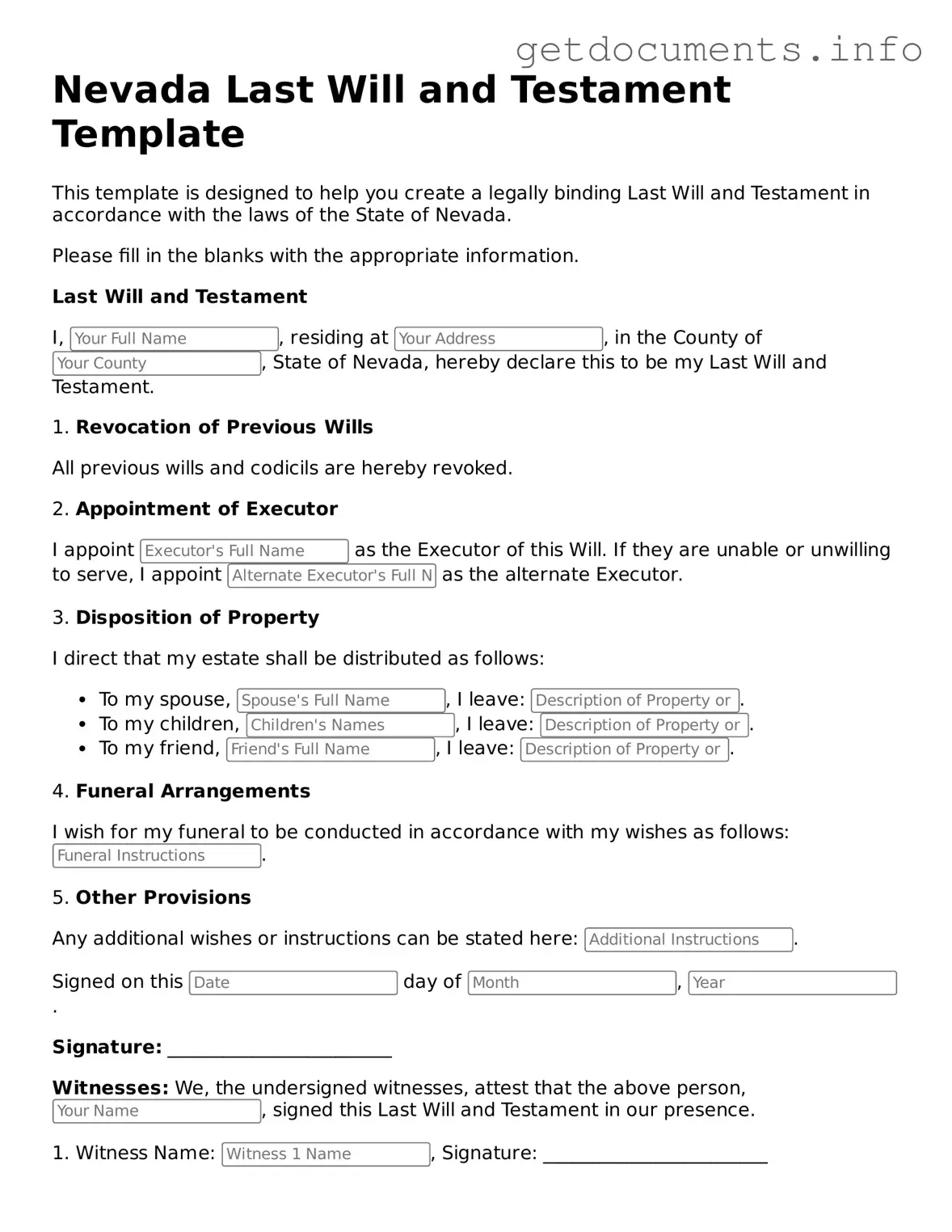Free Last Will and Testament Template for Nevada
A Last Will and Testament is a legal document that outlines how an individual's assets and affairs should be handled after their death. In Nevada, this form allows individuals to specify their wishes regarding the distribution of property, guardianship of dependents, and other important matters. Understanding the specifics of the Nevada Last Will and Testament form is essential for ensuring that one's final wishes are honored.
To begin the process of creating your Last Will and Testament, click the button below to fill out the form.
Access Last Will and Testament Editor

Free Last Will and Testament Template for Nevada
Access Last Will and Testament Editor
Got places to be? Complete the form fast
Fill out Last Will and Testament online and avoid printing or scanning.
Access Last Will and Testament Editor
or
⇩ PDF File
